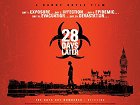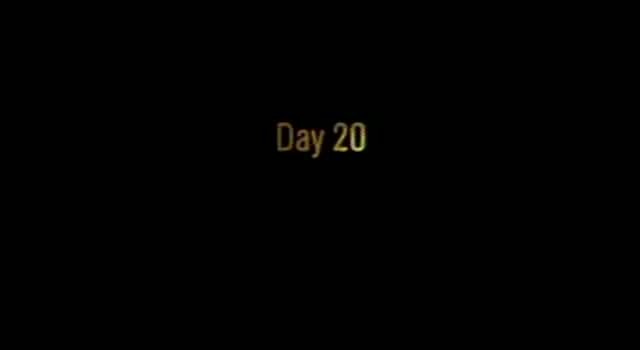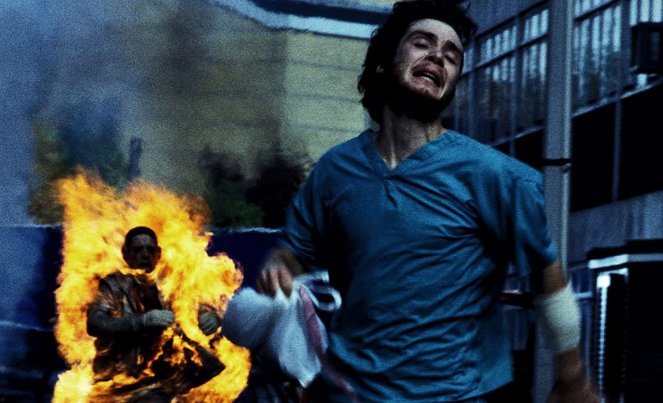Ohjaus:
Danny BoyleKäsikirjoitus:
Alex GarlandKuvaus:
Anthony Dod MantleSävellys:
John MurphyNäyttelijät:
Cillian Murphy, Naomie Harris, Megan Burns, Brendan Gleeson, Christopher Eccleston, Alex Palmer, Christopher Dunne, Luke Mably, Ricci Harnett (lisää)Suoratoistopalvelut (1)
Juonikuvaukset(1)
Hirvittävä virus leviää vahingossa tutkimuslaitokselta. Herkästi tarttuva tauti iskee altistuneeseen sekunneissa ja seurauksena on parantumaton raivotauti. 28 päivän sisään koko maa on viruksen vallassa ja kourallinen selviytyjiä aloittaa epätoivoisen taistelun tulevaisuudesta. Valitettavasti ryhmä ei ymmärrä, että tappava virus ei ole heidän ainoa uhkaajansa. (SF Film Fin.)
(lisää)Videot (2)
Arvostelut (9)
Danny Boyle has gained a following with his Shallow Grave and confirmed his reputation as a talented filmmaker with the cult classic Trainspotting. Therefore, something grand was expected of him and unfortunately, it's not as amazing as one would hope, although from my perspective, it's still enough for a 4-star rating. It's a film that approaches its subject matter too timidly and indecisively. The pacing of the film fluctuates, the screenplay is uncertain, sometimes talkative, and above all, it has an awkwardly happy ending. Within its genre, it's still above average, but I simply expected more from the director of Trainspotting. Overall impression: 70%.
()
Raw British horror that replaces slow zombies with fast infected people, influencing this horror subgenre for many years to come. The casting of Cillian Murphy in the main role was an interesting move, his face has both boyish and girlish features and his transformation from “someone who’s being dragged on” into “the one that saves everybody” was also interesting. Great.
()
First of all, I was surprised that Boyle would venture into something like zombie (or rather, contagion) horror. But as such, I understood it at the beginning and therefore wondered about the inappropriately placed scenes, unsuitable for this genre. Even the unusual musical score suggested that something was amiss. And in the second half, it became clear. Against the backdrop of the struggle for survival, Boyle attempts to portray the behaviour of people in a liminal situation, when they have a choice between retaining a shred of their humanity or being overwhelmed by an instinctive desire to survive at any cost, even at the cost of harming others, and he really doesn't give people the best report card. One of the soldiers in the film says that people killed each other before and will kill each other in the future, in that sense, they are not really that different from the infected. The "infected" themselves are very reminiscent of the aggressive running zombies from Snyder's remake and can occasionally cause a few hear attack situations.
()
Woah. This the first time I've had to write the same review a second time. Server crashes are almost unheard of here at FilmBooster (I had to complain somewhere :-). The most impressive scene of the picture 28 Days Later is undoubtedly Cillian Murphy's pilgrimage through depopulated London, which is basically the second scene in the movie. After that, it's a post-apocalyptic movie about survival and human relations, crossed with a not-so-normal zombie horror movie. The flimsy screenplay is a bit of a problem (it can't decide what type of movie it wants to be), but Danny Boyle saves it with visual touches (once even with an oil painting) and unconventional camerawork.
()
A well-written reproduction of the subject of Romero’s mediocre Day of the Dead, spoiled by unsuitable visuals and music. I want a big-budget, celluloid remake by Guillermo del Toro with music by Marco Beltrami!
()



Mainos